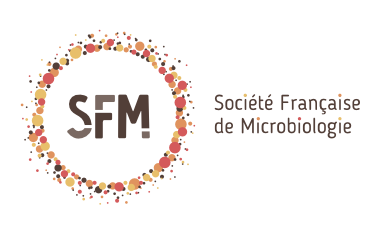Postdoctoral position – Exploring the enzymes involved in the propagation of bacteriophages with modified DNA-
Genoscope – CEA, Evry (France)
Laboratories: LiSSB (Laboratory of Systems and Synthetic Biology) Xenome Team headed by Valérie Pézo and LabGEM (Laboratory of Bioinformatics for Genomics and Metabolism) Raphaël Méheust
The BEMOD project, funded by the French National Research Agency (ANR), aims to identify proteins and understand the mechanisms involved in the propagation of bacteriophages with modified DNA. We focused on bacteriophages containing a total substitution of their genomic adenine (A) with aminoadenine (Z) resulting in a Z:T base pairing with 3 hydrogen bonds. The amino deoxyadenosine triphosphate (dZTP) biosynthetic pathway has been elucidated for two bacteriophages containing ZTGC genomes and we have shown that the DNA polymerases of these phages discriminate in favor of aminoadenine incorporation and against canonical adenine. These bacteriophages also encode nucleotide metabolism modifying enzymes that likely promote the synthesis of their substituted genome.
You will join the Xenome team at the Genoscope, a world-class research center in environmental genomics, biotechnology and sequencing, located at Evry, France. The Xenome team focuses on nucleic acid diversification with the development of artificial information systems based on a new type of nucleic acid named XNA (for Xenobiotic Nucleic Acids) and the study of nucleic acid diversification in the natural living world.
Mission:
The first objective of this postdoc project is to search for new bacteriophage genomes with Z-DNA in metagenomic databases in order to study their environmental distribution. We will next explore the gene content of Z-DNA phages with a focus on genes encoding enzymes involved in the Z-DNA propagation. Preliminary results identified various types of enzymes implicated in Z genomes propagation: enzymes implicated in the nucleotide biosynthesis, salvage pathways, enzymes of replication machinery and DNA polymerases. This part will be done with Raphael Méheust, an expert in comparative genomics. The second objective will be to functionally characterize the most interesting candidates. Preliminary results revealed specific and unexpected functions of certain enzymes adapted to these bacteriophage specificities.
Required qualifications:
• A PhD in molecular biology, microbiology, biochemistry or related fields
• Expertise in biochemistry, molecular cloning DNA, enzymology or DNA replication systems
• Strong interest in protein evolution or structural biology
• Ability to work independently and collaboratively in an interdisciplinary team
How to apply:
Please send your CV and a cover letter describing your research interests, skills and motivation
Starting date: end of 2025 or beginning of 2026
Duration: 2 years
Salary: According to experience and qualifications (CEA salary scale)




